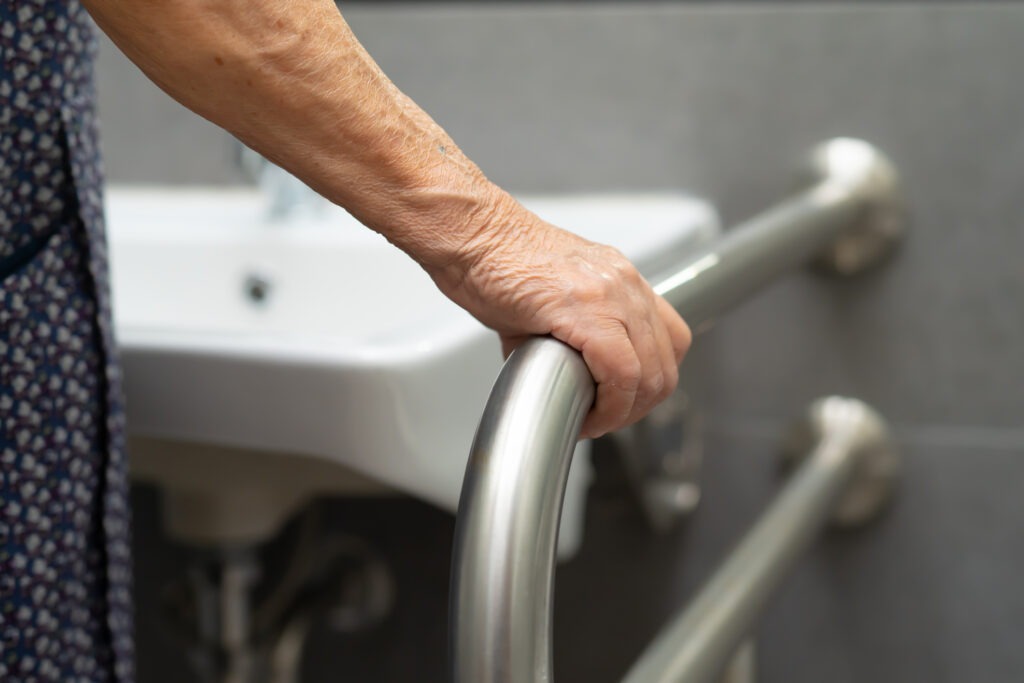Time passes by so quickly, and people in our lives come and go. For children, parents are the most constant within the many changes that life brings as time moves them along. But there comes that moment when we realize we were busy growing up that we overlook how our parents have grown old before our eyes. They now have physical limitations they never had before. Their hairlines are graying and receding. They are not as energetic as they were in their younger years. It’s a season of change for them, and it brings about a season of change to you as an adult child.
Aging is inevitable, so we all have to deal with our parents getting older. It isn’t always easy. While some develop deeper relationships with their parents as they age, some relationships deteriorate as the elderly parents become more stubborn, always confused or forgetting things, or hard to talk to. Some elderly parents become frail and sickly, so their children take the role of a caregiver.
As your parents get older, here are some ways you can adjust and be there for them:
Modify the home environment
As your parent gets older, their mobility may decrease. Consider modifying the home environment to make it safer and more accessible. This may include installing handrails, removing tripping hazards, and ensuring enough lighting. Place the things that they always use in an easily accessible place, as you don’t want them tripping on a chair as they stand there to get something high up the cupboard.
Help out more often
Older people will need extra help as they age. Getting older can affect your mobility and other health aspects. When your parents are finding it more difficult to stay independent, you can help them out with additional care needs in many ways. It doesn’t mean you move them into a nursing home or an assisted living residence. It can often mean giving them a little help with things like cleaning their house, mowing their lawn, preparing their meals, and doing groceries for them. As your parents age, check on them more often and ask how you can help make their life a little easier. Remember, your parents were there to help you out and sort everything out to give you a good quality of life, so now it’s time to give back with a labor of love!
Change how you communicate
Sometimes, changing how you communicate with your parents as they age is important. If you were used to talking back to them (especially when you were a teenager), it’s high time to change that, or you’re going to regret it in the end. Changing the way you communicate with elderly parents is something that typically happens over time anyway, especially as you become an adult who is on a more level playing field with your parents. Now that you have experienced what they had to go through at your age, now you have a common ground and a deeper respect for them.
When your talk comes to disagreements, when they aren’t making sense, or when their frustration of not being able to do things as they did before makes them lash out – still show them respect. Always acknowledge them as your parent and be more understanding. Make sure they see that you still respect them.
Keep your conversations going
Some seniors get sad and depressed as they feel useless. When you were younger, they felt like their lives have purpose because they are working and parenting them to help you grow as a functional adult. But now that you are an adult (and probably have kids of your own), they may feel like they have been placed on the sidelines as their kids go on with their lives.
But it’s important for your parents that they feel that they are needed. Always keep in touch and don’t stop coming to them for advice. FaceTime or video call more often so they can see you and their grandchildren. Talk about your stage in life and ask how they handled it back then. Your parents have golden wisdom to pass down, so don’t miss out on everything you can learn from them.
And if you’re chatting and you keep hearing and hearing the same story, listen and smile like it was the first time. Avoid showing that you’re getting annoyed – they may have just forgotten that they already told you that. If it’s important to them that they tell you that, let them and show that you appreciate them for sharing.
Spend more time with them
As much as possible, spend your rest days with them as often as you can. As your parents get older, you must spend quality time together. Take them to a restaurant for dinner, or go to the theater to watch movies together. If they have no mobility issues, shop with them at the mall and ask for their advice on that dress or kitchen appliance you need to buy. Take them to your kid’s events and laugh about the activities they used to take you to as a child. When they are gone, the only real regret you’ll have is whether or not you spent as much time with them as you possibly could.
Be more patient with them
Your parents aging is a new season for you, but it’s really a hard and emotional time for them, especially when they can’t take care of themselves anymore. If they are feeling frustrated and are taking it out on you, don’t respond emotionally out of frustration, too. Always put yourself in their shoes before responding so you can treat them with gentleness and grace.
Help manage medications
As your parent gets older, they may need to take multiple medications. Help them manage their medications by organizing them, setting reminders, and ensuring they take them correctly. Some older adults can easily mistake one medication for another, which can be dangerous for any health condition. You can help them by organizing their pills into pill caddies, so they can take all that’s placed in each cubby at a time.
Consider in-home care
If your parent needs assistance with daily activities, consider hiring a caregiver to provide in-home care. This can help ensure your parent is safe and comfortable while allowing them to stay home. Caregivers are professionals trained to do the tasks related to caring for older adults who need help due to limited mobility, dementia, Alzheimer’s disease, and other elderly issues.
But you have to know that not all caregivers are the same. A lot of them can do the general stuff like clothing and bathing them, feeding them, and the like – but not all can handle seniors with specific diseases, as you may need a caregiver with a medical background for that. You have to make sure to choose a caregiver who can cater to your older parent’s needs. Do your research and know how to find proper in-home care for your elderly loved ones.
Keep in touch with your parent’s healthcare provider
Make sure to communicate with your parent’s healthcare provider about any changes in their health or abilities. This can help ensure that they receive appropriate care and treatment. As their child, you must be updated about any health improvements or deterioration in your parent so that you can assist them better.
Protect them from scammers
As some people get older, they can become more vulnerable. They may experience some cognitive decline, or they can be too trusting. A lot of scammers target the elderly because of their vulnerability, and they typically have more money. As their child, you can help ensure that they can handle their finances and offer some help if they can’t. Warn them about common scams today and how to avoid them, especially since the elderly are usually not as familiar with technology as we are.
Encourage physical activity
Regular physical activity can help keep your parent’s body and mind healthy. If your parent doesn’t have mobility issues, encourage them to engage in activities such as walking, swimming, or yoga. But if your parent has arthritis or any condition that affects their mobility, be there to assist in whatever they need. If they need to do physical therapy at home, encourage them to do it.
Talk to them about future plans and options
Depending on your parent’s health status and physical limitations, the aging process can look different for every elderly. Some seniors like to age in place, while others look forward to moving to retirement communities.
Either way, knowing and understanding your role in caring for your elderly parents needs open conversation and communication with the topic. Don’t be afraid to ask questions regarding elderly care with your parents so that you can know their preferences. It’s not always an easy topic, but knowing where they stand, how they like to be taken care of, and what is expected of you should that season come can make the process much smoother for the both of you.
Discuss what they want to be done about their property, finances, medical care, and where they want to live. This way, both of you can have peace of mind about the future. So no matter what happens, you’ll be ready and at peace knowing you are following through with what they wanted for their advanced years.





